HHPD
Provides Courtesy Beginning May 1, 2000, New Jersey’s seat belt law is being upgraded. Police officers will be able to stop and issue a summons to drivers and front seat passengers solely for not wearing their set belts. Why have a primary seat belt law: Studies show seat belts do save lives and reduce injuries during crashes. More than 2,000 unbuckled drivers and front seat passengers died on New Jersey’s roadways in the past 10 years. New Jersey’s seat belt use rate is below the national average. The new primary seat belt law: Does not increase the existing fine for not wearing a seat belt. Does not add points to a driver’s motor vehicle record. Does not create a new surcharge or additional payment fees. Applies to all passenger vehicles that are required to be equipped with seat belts. Applies to drivers and front seat passengers. (If a front seat occupant is observed to be unbelted, the fine is $20.00). Continues the existing requirement that the driver is responsible for seat belt use by front seat passengers who are under the age of 18. New Jersey’s existing child passenger law: Allows police officers to stop and issue a summons to a motorist solely for not securing children as legally required. (This continues to be the case after May 1, 2000). Up to age 18 months, children must be in a child safety seat anywhere in the vehicle. Between 18 months and age 5, children in the rear seat must be in a child safety seat or buckled by the vehicle’s seat belt. (If the number of children under age 5 exceeds the number of seat belts, children who are not restrained must ride in the rear seat). Children in the front seat must be in a child safety seat up to age 5. (The penalty for violations of this law ranges from a $10.00 to $25.00 fine). What are the exemptions? Those riding in passenger autos manufactured before July 1, 1966. Those riding in passenger autos that don’t require safety belts under federal law. Those with physical or medical reasons verified in writing by a licensed physician. A word to the wise: Safety belts improve your chances of surviving a crash by 60%. Most crashes occur within 25 miles of home and at speeds of under 40 miles per hour. So buckle up and enjoy life. Information presented by the New Jersey Department of Law and Public Safety and by AAA North Jersey.
|


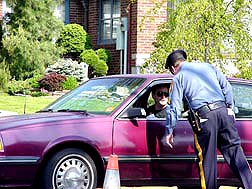
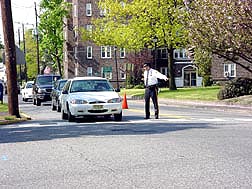
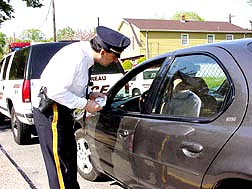
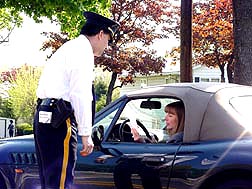
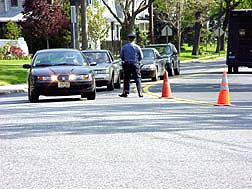
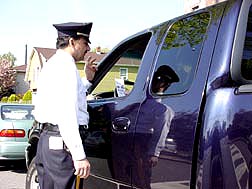
 tm
tm